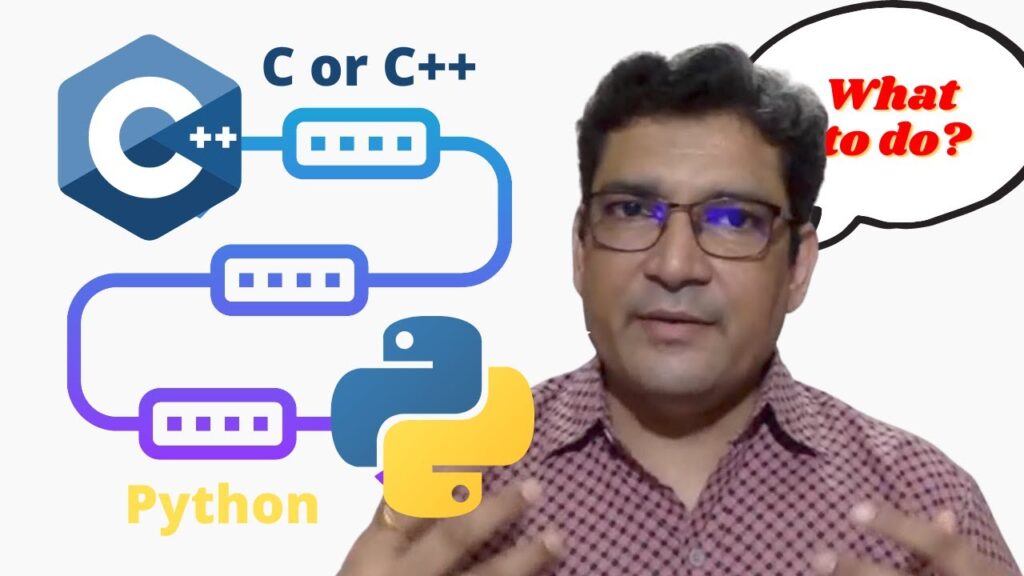If you’re wondering whether to start learning C++ or Python first, it ultimately depends on your goals and interests. C++ is a powerful and fast programming language commonly used in system programming, game development, and high-performance applications. Learning C++ first can provide you with a strong foundation in fundamental programming concepts and a deeper understanding of memory management and performance optimization.
On the other hand, Python is known for its simplicity and readability, making it a great choice for beginners. Python is widely used in web development, data analysis, artificial intelligence, and automation. Starting with Python can allow you to quickly grasp programming concepts and begin working on practical projects, making it a popular choice for those who are new to programming.
When it comes to learning programming languages, beginners often find themselves wondering where to start. Two popular languages, C++ and Python, are often considered ideal options for aspiring programmers. Both have their own strengths and applications, but deciding which one to learn first can be a tough decision. In this article, we’ll explore the benefits and considerations of learning C++ and Python, helping you make an informed choice.
The Case for Learning C++ First
1. Performance and Speed
C++ is a powerful, low-level programming language that offers high-performance and efficiency. It is widely used in areas where speed and performance are critical, such as game development, system programming, and embedded systems. By learning C++ first, you’ll gain a solid understanding of memory management, algorithms, and optimization techniques, which can be beneficial in high-performance computing scenarios.
2. Object-Oriented Programming (OOP)
C++ is an object-oriented language, and mastering its concepts can provide a strong foundation for understanding OOP principles. Learning C++ allows you to gain hands-on experience with concepts like classes, inheritance, polymorphism, and more. These skills are transferable to many other languages, making it easier to learn additional languages in the future.
3. Industry Demand
C++ is widely used in industries like gaming, finance, and telecommunications. By learning C++ first, you open up opportunities to work on exciting and lucrative projects. Additionally, many legacy systems and libraries are written in C++, so understanding the language will enable you to maintain and modify existing codebases.
4. Deeper Understanding of Computer Science
Learning C++ forces you to dive deeper into computer science concepts such as memory, pointers, and data structures. This deeper understanding can help you become a more well-rounded programmer, capable of solving complex problems more efficiently. It also prepares you for advanced topics like operating systems and compilers.
The Case for Learning Python First
1. Simplicity and Ease of Use
Python is renowned for its simplicity and readability. Its beginner-friendly syntax and clear, concise code make it easier to understand and learn. Python prioritizes simplicity and code readability, allowing beginners to grasp fundamental programming concepts quickly. Learning Python first can build your confidence and motivation by providing a gentle entry into programming.
2. Versatility and Wide Application
Python is a versatile language that can be used for a wide range of applications. It excels in areas like web development, data analysis, scripting, and automation. By learning Python first, you can start working on real-world projects faster. Python’s extensive libraries and frameworks allow you to accomplish complex tasks with minimal code.
3. Growing Demand and Job Opportunities
The demand for Python developers has skyrocketed in recent years. Python’s popularity in fields such as data science and machine learning has led to a surge in job opportunities. Learning Python first can give you a head start in these emerging fields, increasing your employability and future prospects.
4. Focus on High-Level Concepts
Python abstracts away many low-level details, enabling beginners to focus on high-level concepts like problem-solving and algorithm design. By learning Python first, you can gain a solid understanding of fundamental programming principles, making it easier to transition to other languages later. Python’s emphasis on simplicity can help you grasp concepts quickly and start building practical applications sooner.
Ultimately, the choice between learning C++ or Python first depends on your goals, interests, and industry preferences. If you’re interested in performance-critical applications, low-level programming, or industry domains where C++ is dominant, learning C++ first may be beneficial. On the other hand, if you prioritize simplicity, wider application opportunities, and want to get started quickly, Python may be the better choice.
Remember, learning one programming language doesn’t mean you can’t learn others in the future. Both C++ and Python have unique features and strengths that will enhance your programming skills in different ways. So, take the time to evaluate your goals and interests, and choose the language that aligns with your aspirations. Happy coding!
Whether you choose to learn C++ or Python first depends on your specific goals and interests. Both languages have their own unique advantages and applications. It may be helpful to consider factors such as your programming objectives, the industries you are interested in, and the learning curve of each language before making a decision. Ultimately, the most important thing is to begin learning and continue to expand your skills in both languages over time.














